The Bachelor’s in Health Care Administration and Management degree helps you develop the skills and knowledge you need to succeed in the areas of patient care and services. The coursework in these programs teaches students how to perform functions at the administrative level in:
- clinics
- physicians’ offices
- hospitals,
- other types of health care facilities
Health care administrators or managers are also responsible for ensuring their organizations comply with federal, state, and local laws. They are in charge of:
- overseeing their facilities
- managing budgets
- creating schedules
Ultimately, the goal of this industry is to ensure that patients are as safe and comfortable as possible. The minimum level of education required for these positions is the bachelor’s degree in which students develop the leadership, technical, and problem-solving skills future employers need in their employees. Our 20 affordable online Bachelor’s in Health Care Administration and Management is a great place to start if you are considering a career in this field.
Methodology
There are hundreds of on-campus, online, and hybrid programs designed for aspiring health care administrators and managers. This is why we developed the following list of the most affordable degrees in this field. Using the National Center for Education Statistics’s (NCES) College Navigator Tool, we conducted a search for the term “online Bachelor’s in Health Care Administration and Management degree” and narrowed down the initial results from 50 colleges and universities into the top 20. It’s based on factors such as:
- in-state tuition rates
- student/faculty ratios
- graduation rates
- national rankings by U.S. News & World Report
We also made sure the information was as current as possible by cross-referencing it with each school’s website.
Average Cost of Attendance
The cost of a program is arguably one of the most important factors when it comes to choosing a bachelor’s degree in health care administration and management. Keep in mind that some of the cheapest degrees out there will hit every item on your checklist, while the most expensive degrees will fall short. In other words, consider tuition in relation to the program as a whole and avoid basing your decision on cost alone. In this ranking, we awarded points based on the cost of one year’s tuition for in-state students who are pursuing 15 hours of classes each semester. However, we provided both in-state and out-of-state tuition rates for your reference.
Points:
$7,499 and under: 3 points
$7,500 to $15,000: 2 points
$15,001 and above: 1 point
Student/Faculty Ratio
Decide whether you are looking for a large school that offers plenty of opportunities for concentrations and specializations, or a small school where you can benefit from developing close relationships with faculty and peers. Larger institutions may have more opportunities for internships and practicum experiences. Small colleges may have more opportunities for individualized studies. Every student is different, and not everyone thrives in the same type of learning environment. For the purpose of this ranking, we awarded the maximum number of points to colleges and universities with class sizes of 10 or fewer students.
Points:
10:1 or less: 3 points
11:1 to 15:1: 2 points
15:2 or greater: 1 point
College Ranking
When comparing schools, it is often helpful to consult a resource that evaluates and reports on schools and the programs they offer such as U.S. News & World Report, a recognized leader in postsecondary school rankings. We consulted the organization’s Best Online Bachelor’s Programs category to determine the quality of each program and awarded points based on how the organization’s published ranking.
Points:
U.S. News & World Report: Best Online Bachelor’s Program Ranking:
Top 25: 5 points
Top 50: 4 points
Top 75: 3 points
Top 100: 2 points
More than 100: 1 point
Graduation Rate
The final factor to keep in mind when considering the quality of the program is the school’s graduation rate. With this number, one can make a solid assumption about the institution’s:
- student learning outcomes
- academic programs
- experience of faculty members
You can also tell whether or not students were satisfied with their degree. For example, colleges and universities with high graduation rates are likely to have provided:
- appropriate academic support for their students
- affordable tuition rates,
- caring, knowledgeable faculty
We awarded the most points to schools with the highest graduation rates, indicating an overall positive impression. We awarded the fewest points points to schools with the lowest graduation rates, indicating an overall negative impression.
Points
51 percent or more: 3 points
Between 30 percent and 50 percent: 2 points
29 percent or less: 1 point
Ranking Top 20 Undergraduate Degree Programs in Health Care Administration and Management
20. University of South Dakota
Vermillion, South Dakota

Points: 6
Program Website
The University of South Dakota offers an online bachelor’s degree in health sciences. Students can follow one of six academic concentrations in:
- undergraduate research
- health care studies
- undergraduate public health
- pre-professional studies
- health care advancement studies
- undergraduate clinical informatics
A total of 120 credit hours are required for the degree in core areas such as:
- patient safety
- public health
- leading change
- health care delivery
- human anatomy
- physiology, patient safety, and technology
Graduates are prepared for:
- graduate studies
- career advancement
- entry-level employment in health and human services settings.
Degree Options:
Online Bachelor’s Degree in Health Sciences
In-State Tuition: $10,201
Out-of-State Tuition: $10,201
Student/Faculty Ratio: 18:1
Graduation Rate: 55 percent
U.S. News & World Report Ranking:
N/A
19. University of Toledo
Toledo, Ohio
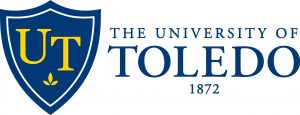
Points: 6
Program Website
The University of Toledo offers the online Bachelor of Science in Health Information Administration. Students can complete the program within two years if they hold a bachelor’s degree in another field or an associate degree in health information technology. The program combines the study of:
- finance
- management
- information technology
- medicine,
- law
It includes a professional practice experience and an integrative capstone experience. These give students hands-on, real-world learning. Students also take online courses in:
- legal issues in health information administration
- health care record and content management
- health information administration practices
- financial management,
- interpersonal communications
Graduates are eligible to sit for the Registered Health Information Administration examination to earn certification.
Degree Options:
Online Health Information Administration Bachelor’s Degree
In-State Tuition: $9,795
Out-of-State Tuition: $19,155
Student/Faculty Ratio: 21:1
Graduation Rate: 41 percent
U.S. News & World Report Ranking:
#114 (tie)
18. University of Northwestern Ohio
Lima, Ohio
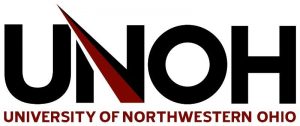
Points: 6
Program Website
The University of Northwestern Ohio offers a Bachelor of Science in Healthcare Administration in the form of a 2+2 degree. This means that students are eligible to transfer coursework from an associate program into the bachelor’s degree. Through the 90-credit program, students develop the management knowledge and skills they need to seek employment in the field of health care. Junior level and senior level courses are offered in areas such as:
- epidemiology and public health
- economics
- health information technology
- accounting and finance
The curriculum is also comprised of health care management essentials. Students must complete a capstone course in health care before earning their degree.
Degree Options:
Bachelor of Science in Healthcare Administration
In-State Tuition: $8,250
Out-of-State Tuition: $8,250
Student/Faculty Ratio: 28:1
Graduation Rate: 57 percent
U.S. News & World Report Ranking:
N/A
17. Oregon Institute of Technology
Klamath Falls, Oregon

Points: 6
Program Website
Students seeking careers in administrative and managerial positions may benefit from the Oregon Institute of Technology’s Bachelor of Science in Health Care Management. Students can choose either a clinical option or a radiologic science option if they have prior experience or education in health care. Students who have no experience or education in health care may opt for the administrative option. Here they may complete one of two tracks:
- health data analytics
- psychology
Graduates are prepared for master’s degrees in:
- health care administration
- hospital administration
- public health.
They are also prepared for entry- and mid-level management positions in the field. The curriculum focuses on common management courses while developing students’ knowledge of U.S. health care and its systems, policies, and challenges.
Degree Options:
Bachelor of Science in Health Care Management
In-State Tuition: $8,000
Out-of-State Tuition: $8,000
Student-to-Faculty Ratio: 15:1
Graduation Rate: 45 percent
U.S. News & World Report Ranking:
N/A
16. Montana State University Billings
Billings, Montana

Points: 6
Program Website
Montana State University Billings offers a Bachelor of Science in Health Administration that is available via distance learning. Students benefit from community partnerships that enhance the depth and quality of the program. They complete a field experience and a senior internship to gain real-world training in health administration. Core classes are offered in areas such as:
- accounting
- organization and management
- finance human resource management
- health politics and policy
- financial management
- managerial epidemiology
- law and ethics
- health informatics
- management of health care organizations.
A five course, optional concentration is available in:
- long-term care management
- health informatics technology
- business.
Degree Options:
Bachelor of Science in Health Administration
In-State Tuition: $6,909
Out-of-State Tuition: $12,671
Student/Faculty Ratio: 14:1
Graduation Rate: 27 percent
U.S. News & World Report Ranking:
N/A
15. Dallas Baptist University
Dallas, Texas
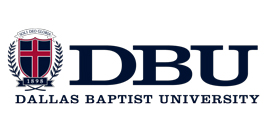
Points: 7
Program Website
The College of Professional Studies at Dallas Baptist University offers both a Bachelor of Arts and a Bachelor of Science in Health Care Management degree. Students complete:
- 41 to 51 hours of electives
- 39 to 49 hours of general studies,
- 30 hours of courses within the health care management major
Topics investigated in this program include:
- legal issues
- finance
- human resource management
- ethics
- principles of management
- organizational behavior
- marketing
- information systems
- management communication
Graduates are prepared for entry level positions in the field as well as graduate-level studies.
Degree Options:
Bachelor of Arts and Sciences in Health Care Management
In-State Tuition: $29,220
Out-of-State Tuition: $29,220
Student/Faculty Ratio: 12:1
Graduation Rate: 58 percent
U.S. News & World Report Ranking:
#200 (tie)
14. Viterbo University
La Crosse, Wisconsin
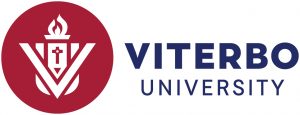
Points: 7
Program Website
Viterbo University offers a Bachelor of Business Administration in Health Care Management. It can be completed entirely through distance learning. Students take eight-week classes and develop a solid foundation of:
- economics
- legal and ethical issues
- health care marketing
- informatics
- quality improvement
Class sizes are intentionally kept small. Students may earn their degree on a full- or part-time basis depending on their commitments outside of the school. Graduate students may use their studies toward the requirement to sit for the Nursing Home Administrator (NHA) licensure in the state of Washington. Advising and personalized support services are also available to online and on-campus students alike.
Degree Options:
Bachelor of Business Administration in Health Care Management
In-State Tuition: $14,100
Out-of-State Tuition: $14,100
Student/Faculty Ratio: 11:1
Graduation Rate: 55 percent
U.S. News & World Report Ranking:
N/A
13. Granite State College
Concord, New Hampshire

Points: 7
Program Website
Granite State College offers a Bachelor of Science in Health Care Management. It educates students about the best practices and critical functions in health care administration. Students combine coursework in health care with topics of study such as:
- leadership
- diversity management
- organizational development
Students grow their skills and knowledge as well-rounded health care managers. The program is comprised of 120 hours of study, including:
- classes in fiscal management
- human resource management
- health information systems
- health care policy
- financing techniques and reimbursement
- ethics and law
- health, culture, and community
Before students graduate the program, they must also complete an integrative capstone experience in the field of health care management.
Degree Options:
Health Care Management (B.S.)
In-State Tuition: $9,420
Out-of-State Tuition: $10,950
Student/Faculty Ratio: 11:1
Graduation Rate: 14 percent
U.S. News & World Report Ranking:
#76 (tie)
12. SUNY College of Technology at Canton
Canton, New York

Points: 7
Program Website
SUNY College of Technology at Canton provides an online Bachelor of Science in Health Care Management that can be completed within four years. Students develop a foundation in:
- managed care
- ethical and legal issues in health care
- finance
- public health
Students also explore the U.S. health care system and its functions as well as health care administration as an industry. Business-focused courses are offered in:
- finance
- accounting
- economics
- human resources
- marketing
Students learn the skills they need to seek entry-level employment in various types of health care organizations. To complete the program, students may do an internship, take extra classes, or combine a partial internship with classroom learning.
Degree Options:
Health Care Management – B.S.
In-State Tuition: $8,580
Out-of-State Tuition: $10,290
Student/Faculty Ratio: 17:1
Graduation Rate: 30 percent
U.S. News & World Report Ranking:
#36 (tie)
11. Weber State University
Ogden, Utah
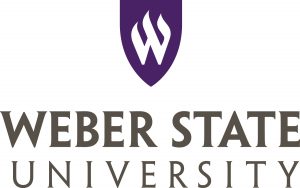
Points: 7
Program Website
Weber State University’s Dumke College of Health Professions offers a Bachelor of Science in Health Services Administration. It focuses on areas such as:
- supervisory and administrative theory
- biostatistics and epidemiology
- human resource development
- health informatics
- financial administration
- ethics and law
The curriculum is comprised of 120 hours of coursework, including an internship/practicum experience. Here, students observe, participate, and apply administrative and management skills in a real-world setting. Graduates are prepared for roles in health care organizations such as:
- hospitals
- skilled nursing facilities
- clinics
- rehabilitation centers
- nursing homes
- health departments.
Degree Options:
Bachelor of Science in Health Services Administration, Health Services Administration Emphasis
In-State Tuition: $5,986
Out-of-State Tuition: $5,986
Student/Faculty Ratio: 21:1
Graduation Rate: 33 percent
U.S. News & World Report Ranking:
#264-#348
10. Maryville University
St. Louis, Missouri

Points: 8
Program Website
Maryville University offers the Bachelor of Science in Healthcare Management. It consists of coursework in:
- financial management in health care
- software and technology in health care
- patient partnerships and population health management
- human resources
- management, communication, and information technology
Students develop a solid grounding in core business principles emphasized by strategic health care practices and methods. An immersive practicum experience is required before students can earn their degree. A capstone course serves as the culminating project for the program. Students identify a problem facing health care organizations and present a practical solution.
Degree Options:
Bachelor of Science in Healthcare Management
In-State Tuition: $15,000
Out-of-State Tuition: $15,000
Student/Faculty Ratio: 14:1
Graduation Rate: 72 percent
U.S. News & World Report Ranking:
#264-#348
9. Concordia University-Wisconsin
Mequon, Wisconsin
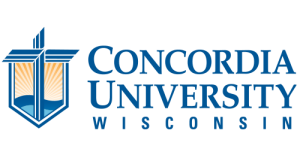
Points: 8
Program Website
Concordia University-Wisconsin offers the 120-credit Bachelor of Arts in Health Care Management. It provides students with the opportunity to develop the supervisory skills necessary for management and administration in:
- acute settings
- communities
- long-term facilities
The curriculum is provided through a Christian worldview. It consists of classes in:
- health care marketing
- human resource management
- health care evaluation and planning
- financial accounting
- ethics
- eldercare
A health care practicum and a capstone course in the form of an integrative project are also required. Graduates are eligible to become certified Nursing Home Administrators (NHAs) after completing the program.
Degree Options:
Bachelor of Arts in Health Care Management
In-State Tuition: $14,910
Out-of-State Tuition: $14,910
Student/Faculty Ratio: 11:1
Graduation Rate: 53 percent
U.S. News & World Report Ranking:
#137 (tie)
8. Mercy College of Ohio
Toledo, Ohio
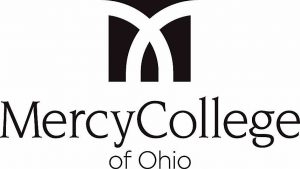
Points: 8
Program Website
Mercy College of Ohio offers the Bachelor of Science in Healthcare Administration. It prepares students to become:
- mid-level hospital managers
- health care consultants
- long-term care, managed care, clinic, or public health administrators
The program combines business-specific knowledge as it relates to health care with core management competencies. Students complete general education requirements as well as 39 credit hours in health care administration. These areas include:
- health care management
- ethics and law
- reimbursement
- finance
- population health
- accounting
- economics
- organizational behavior
- human resource management
- information systems
An optional practicum experience provides the opportunity for real-world, hands-on learning.
Degree Options:
Bachelor of Science in Healthcare Administration
In-State Tuition: $13,350
Out-of-State Tuition: $13,350
Student/Faculty Ratio: 7:1
Graduation Rate: 58 percent
U.S. News & World Report Ranking:
N/A
7. Colorado State University Global
Greenwood Village, Colorado

Points: 8
Program Website
The online Bachelor of Science in Healthcare Administration and Management at Colorado State University Global helps students develop their skills and knowledge in business-related areas such as strategic planning, communication, management, human resources, and marketing. Students also build on their existing understanding of the systems related to population health, quality assurance, laws and regulations, risk management, insurance, and managed care. Students complete 15 three-credit courses within the 120-credit program, including a practicum experience in health care management and a capstone course in health care policy and analysis. CSU Global also confers a dual major for students seeking both a bachelor’s and a master’s degree in health care administration and management.
Degree Options:
Bachelor of Science in Healthcare Administration and Management
In-State Tuition: $8,400
Out-of-State Tuition: $8,400
Student-to-Faculty Ratio: 31:1
Graduation Rate: N/A
U.S. News & World Report Ranking:
#8 (tie)
6. Drury University
Springfield, Missouri
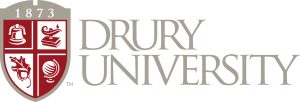
Points: 8
Program Website
Students looking to develop the skills to advance in health care organizations may pursue the Bachelor of Science in Health Services Management from Drury University. Students can choose from one of two tracks, depending on their current employment and academic goals. The first is for undergraduates earning dual Bachelor of Science degrees in health services management and nursing from Drury University and Cox College. The second is for:
- registered nurses
- emergency medical services personnel
- radiological technologists
- occupational therapy assistants
- respiratory therapists
- physical therapy assistants
Regardless of the track chosen, all students complete 18 hours in major courses that cover areas such as:
- models and theory of leadership
- conflict resolution and negotiation
- the biology of behavior
- social gerontology.
Degree Options:
Bachelor of Science in Health Services Management
In-State Tuition: $9,240
Out-of-State Tuition: $9,240
Student/Faculty Ratio: 13:1
Graduation Rate: 55 percent
U.S. News & World Report Ranking:
#264-#348
5. SUNY Polytechnic Institute
Utica, New York
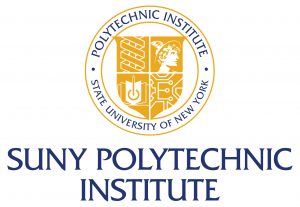
Points: 8
Program Website
Students can pursue either a Bachelor of Professional Studies or a Bachelor of Science in Health Information Management from the State University of New York (SUNY) Polytechnic Institute. Both programs require completing 56 credits in core coursework in health information management. The full program is 124-credits. Students develop a foundation of skills and knowledge in key areas in the field, including:
- accounting
- health information management
- human resource management
- ethics and law
- data analysis and management
- research
- electronic health records
Students also participate in three professional practical experiences before graduating. Those who earn their degree are eligible to sit for the certification examination to become Registered Health Information Administrators (RHIAs).
Degree Options:
Bachelor of Science in Health Information Management
Bachelor of Professional Studies in Health Information Management
In-State Tuition: $6,870
Out-of-State Tuition: $16,650
Student/Faculty Ratio: 13:1
Graduation Rate: 52 percent
U.S. News & World Report Ranking:
N/A
4. East Carolina University
Greenville, North Carolina
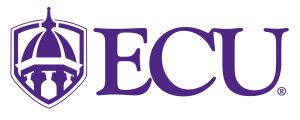
Points: 8
Program Website
The Bachelor of Science in Health Information Management at East Carolina University is the only CAHIIM-accredited degree in North Carolina. It’s offered through the Department of Health Services & Information Management. The program is comprised of 126 semester hours of coursework that covers key areas such as:
- data management
- human resources
- accounting and finance
- health information technology
- security and privacy
Students must complete a culminating experience in allied health management such as:
- a specific project
- professional shadowing
- individual study,
- cooperative practicum relevant to the field
Graduates are eligible to sit for the credentialing examination to become Registered Health Information Administrators (RHIAs).
Degree Options:
Bachelor of Science in Health Information Management
In-State Tuition: $4,992
Out-of-State Tuition: $21,489
Student/Faculty Ratio: 19:1
Graduation Rate: 62 percent
U.S. News & World Report Ranking:
#150 (tie)
3. George Washington University
Washington, D.C.

Points: 11
Program Website
George Washington University offers a Bachelor of Science in Health Sciences in Clinical Research Administration. The program is designed for:
- clinical research professionals seeking an undergraduate degree
- health sciences professionals currently working in the field
Designed to be completed in two years, the program is available entirely online. It prepares students with critical skills and knowledge pertaining to the development of medicine and the conduct of clinical trials. The curriculum focuses on the key scientific and administrative methods of clinical research. It also studies the regulatory guidelines to protect subjects and the current methods of good clinical practice. Graduates are prepared for career advancement as well as entry-level positions in clinical organizations.
Degree Options:
Bachelor of Science in Health Sciences in Clinical Research Administration
In-State Tuition: $18,900
Out-of-State Tuition: $18,900
Student/Faculty Ratio: 13:1
Graduation Rate: 81 percent
U.S. News & World Report Ranking:
#20 (tie)
2. University of Alabama at Birmingham
Birmingham, Alabama
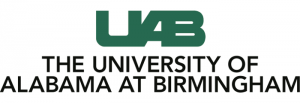
Points: 11
Program Website
The Bachelor of Science in Health Care Management at the University of Alabama at Birmingham is a 120-semester-hour program. It prepares graduates to seek mid-level management positions in health care organizations. Several concentrations are available in clinical manager, long-term care administration, and pre-professional. Students are encouraged to select one based on:
- their current professional status
- personal interests
- future career goals
The program culminates in a management internship consisting of six-credit-hours for all tracks except clinical management option, which consists of three-credit-hours in an internship. UAB also offers three fast-track programs for students looking to earn their degree at an accelerated pace:
- occupational therapy
- health informatics,
- health care safety and quality.
Degree Options:
B.S. in Health Care Management
In-State Tuition: $13,230
Out-of-State Tuition: $13,230
Student/Faculty Ratio: 16:1
Graduation Rate: 53 percent
U.S. News & World Report Ranking:
#12 (tie)
1. University of Central Florida
Orlando, Florida
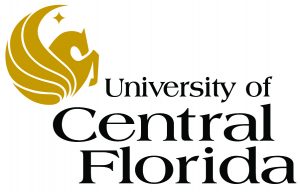
Points: 12
Program Website
The University of Central Florida offers a 120-credit-hour, online Bachelor of Science in Healthcare Administration. It’s designed for students seeking entry-level positions or graduate studies in the field of administration and management. Students complete general education requirements as well as coursework in specific areas of health care administration, including:
- long-term administration and care
- health information technology
- health care insurance and reimbursement
- epidemiology
- management and organization
- community health
- ethics and law,
- economics
Also required for graduation is a 150-hour internship to be completed in a health care organization. A health services administration capstone course is also required.
Degree Options:
Bachelor of Science in Healthcare Administration
In-State Tuition: $5,375
Out-of-State Tuition: $11,515
Student/Faculty Ratio: 30:1
Graduation Rate: 70 percent
U.S. News & World Report Ranking:
#14
Frequently Asked Questions
What are the Career Options for a Bachelor’s in Health Care Administration and Management Degree?
Every day is different for someone working in the field of health care administration and management. Professionals may spend one day training current and new employees on updated laws and regulations. They might spend the next day representing their facility or organization at an investor meeting. The career options for a Bachelor’s in Health Care Administration and Management degree are many because they may seek employment in settings such as:
- pharmaceutical companies
- government health care organizations
- health insurance companies
- behavioral health agencies
The profession as a whole typically attracts students who care for others and who are focused, detail-oriented, and able to tackle several tasks and duties at the same time. Some popular career paths for someone who holds a bachelor’s degree in health care administration and management include:
- Health Information Manager
- Assistant Administrator
- Nursing Home Administrator
- Clinical Manager
- Training and Development Manager
- Social and Community Support Manager
- Health Insurance Specialist
- Human Resources Manager
How Much Can You Earn in This Field?
Due to the number of positions one can hold with a bachelor’s degree in health care administration and management, salary earnings and expectations will vary wildly. In addition, administrators or managers who work in senior roles with years of experience under their belts will earn significantly more than professionals in support or assistant roles. Below we have outlined several popular career options for this degree and the salaries one can expect to earn in these positions.
The U.S. Bureau of Labor Statistics reports that medical and health services managers earned $99,730 per year as of May 2018, with the lowest 10 percent earning less than $58,680 and the highest 10 percent earning more than $182,600. Top-paying industries for medical and health services managers include:
- Government: $110,460
- Private, local, and state hospitals: $108,730
- Outpatient care centers: $92,390
- Physicians’ offices: $90,920
- Residential care and nursing facilities: $84,260
Administrative services managers across all industries and occupations earned $96,180 in May 2018, with the lowest 10 percent earning less than $55,000 and the highest 10 percent earning more than $165,470. Although these are figures for the broad occupation, an estimated 13 percent of administrative services managers work in the fields of social assistance and health care. Specifically, salary earnings for these professionals was $88,050 in May 2018, according to the BLS.
What Courses Will You Take in an Online Bachelor’s in Health Care Administration and Management Degree Program?
When comparing different degree programs for your online Bachelor’s in Health Care Administration and Management degree, keep in mind that no two programs are alike. Depending on the specialization or pathway you wish to follow, the courses you will take will vary. However, there are a number of common courses included in most undergraduate health care administration and management degree programs such as:
- Quality Management
- Research and Evaluation
- Healthcare Reimbursement
- Legal and Ethical Aspects of Health Care Management
- Organizational Behavior in Health Care
- Health Care Delivery Systems
Most programs require students to complete a capstone course in health care administration before graduating. Here, they apply what they have learned in real-world situations. In addition, some schools encourage students to further develop their hands-on training through internship experiences in their local communities.
Health care management and administration is a challenging and complex field. It is also a rewarding one that offers job stability and the potential for a decent salary. If you are looking to pursue a career as a health care administrator or manager, we hope this ranking serves as a helpful point of reference on which you can base your search.
AS Staff
This concludes our ranking of the Top 20 Affordable Online Bachelor’s Degrees in Health Care Administration and Management.
Other Rankings of Interest:
- 20 Tuition-Free Colleges
- 30 Most Attractive Yet Affordable College Campuses
- The 50 Most Affordable Colleges with the Best Return
- 25 of the Oldest American Colleges and Universities
- 25 Most Affordable Online Master’s of Healthcare Administration and Management Degrees
- 25 Most Affordable Online Master’s of Nursing Degrees
- 25 Most Affordable Online Master’s of Public Health Degrees
- 20 Affordable Online Bachelor’s Degrees in Healthcare Administration and Management
- These 30 Colleges are Reversing the Rise in Tuition
- 50 Most Entrepreneurial Schools in America

 The Best Colleges
The Best Colleges The Lowest Costs
The Lowest Costs The Highest Returns
The Highest Returns